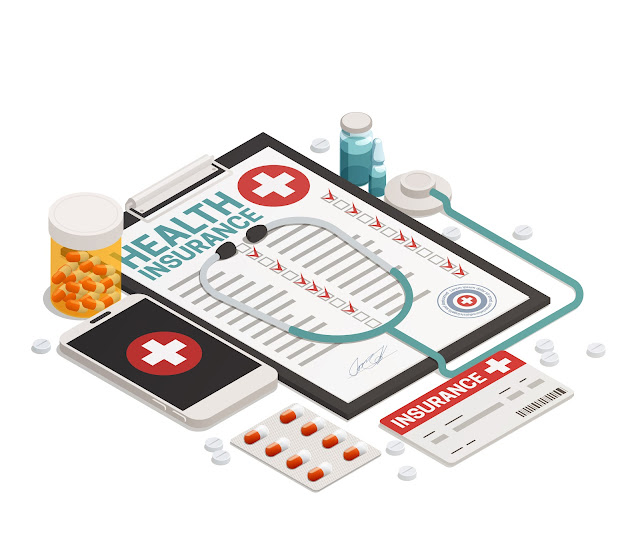Avoid these blunders while using a credit card In India
Your credit card can be used to make internet purchases, pay at physical stores, and get cash from ATMs. This money is not deducted from your savings bank account, in contrast to a debit card. Instead, your credit card company gives money to you as a loan from a set credit limit. You have up to 50 days from the transaction date to pay back this loan without incurring interest.
When you use your credit card to make purchases, you can also receive rewards points, cashback, and discount coupons. The credit card company offers exciting presents and gift cards that may be redeemed for these reward points.
Why it's crucial to use your credit card properly
Even while using a credit card offers numerous benefits, it's crucial to use it responsibly. Credit cards may be a very effective financial instrument when used appropriately. You may improve your credit score and even handle a financial emergency without difficulty with its assistance.
However, a lot of people misuse their credit cards without exercising discipline, which leads to financial disaster. Any intentional or unintentional misuse of your credit card has the potential to have serious consequences for you.
You must be aware of how to use your credit card in order to prevent fraud. Following are six frequent credit card errors you must never make:
1. Not paying credit card bills in a timely manner
Never ignore the due date on your credit card. This can cause you great harm. All credit card companies permit a 48-day interest-free grace period on purchases made within a billing cycle. You must pay your debts in full by a particular day each month, depending on your billing cycle.
Even though you can pay your credit card payment after the due date, you will begin to be charged interest on the unpaid balance every day. On credit card balances, interest rates are frequently very high. Additionally, failing to make credit card payments might lower your credit score and make it more difficult for you to obtain a loan.
2. Paying only the bare minimum required
Do you try to carefully study your credit card statement? If you do, you will see that it lists both the total amount due and the minimum amount due as outstanding sums. By permitting minimum payments, credit card companies make it simple for cardholders to pay their debts. This is not advised, though.
Why? Because when you pay only the minimum due amount, the remaining balance is carried forward to your next month’s billing cycle, and interest is charged on it as per the applicable interest rate. And when you have an unpaid balance on your credit card, even the new transactions start attracting interest charges from day one.
3. Failing to read your credit card statements in full
You should always carefully examine your credit card statement before making the payment, as was previously stated. Verifying that all transactions listed on the statement are correct is essential. If a fraudulent or inaccurate transaction appears on your credit card, you will be able to notify your credit card provider using this method.
Credit cards can come with a number of additional fees that are not disclosed, including yearly fees, finance charges, late payment fees, and interest rates. You can ask your credit card company to waive any such charges that you find on your credit card statement and believe are unfair.
4. Taking frequent cash withdrawals using your credit card
Although you can use your credit card to get cash from an ATM, you shouldn't do so unless it's an emergency. It's because cash advances from credit card companies have high interest rates, and in some institutions, interest begins to accrue as soon as you withdraw the money.
Additionally, when you use your credit card to make a cash withdrawal, the interest-free period is nullified, and you immediately begin to accrue interest on subsequent transactions. By doing this, your debt keeps growing, and you run the risk of having to pay a large sum of money in the end.
5. Failing to keep a proper credit utilization ratio
As you are aware, a number of variables, including your monthly income, credit history, open loan accounts, and credit utilization ratio, affect your credit score. Any change to one of these factors can severely lower your credit score.
Therefore, it's imperative to use your credit card in a responsible manner at all times. This means you should refrain from using your credit card to the fullest extent possible. A credit utilization ratio of 50% or less is the ideal level.
6. Obtaining a credit card that is inadequate for your needs
Credit cards are available in India from a number of banks and non-banking financial institutions (NBFCs). Selecting the appropriate credit card is essential. Before applying for a credit card, you should carefully consider its terms, conditions, fees, features, and advantages.
Use a credit card that offers extra bonuses when purchasing hotel rooms and flights, for instance, if you travel frequently. For optimal benefits, you can also keep several credit cards and divide your payments among them. To transfer your outstanding balance from other credit cards at cheaper interest rates, you might even search for a credit card with a balance transfer feature.
Conclusion
Although credit cards are quite practical, you must utilize them carefully. To avoid unnecessary indebtedness and financial harm, stay away from the faults mentioned above. Above all, don't forget to pick the appropriate credit card for your needs.




Comments
Post a Comment